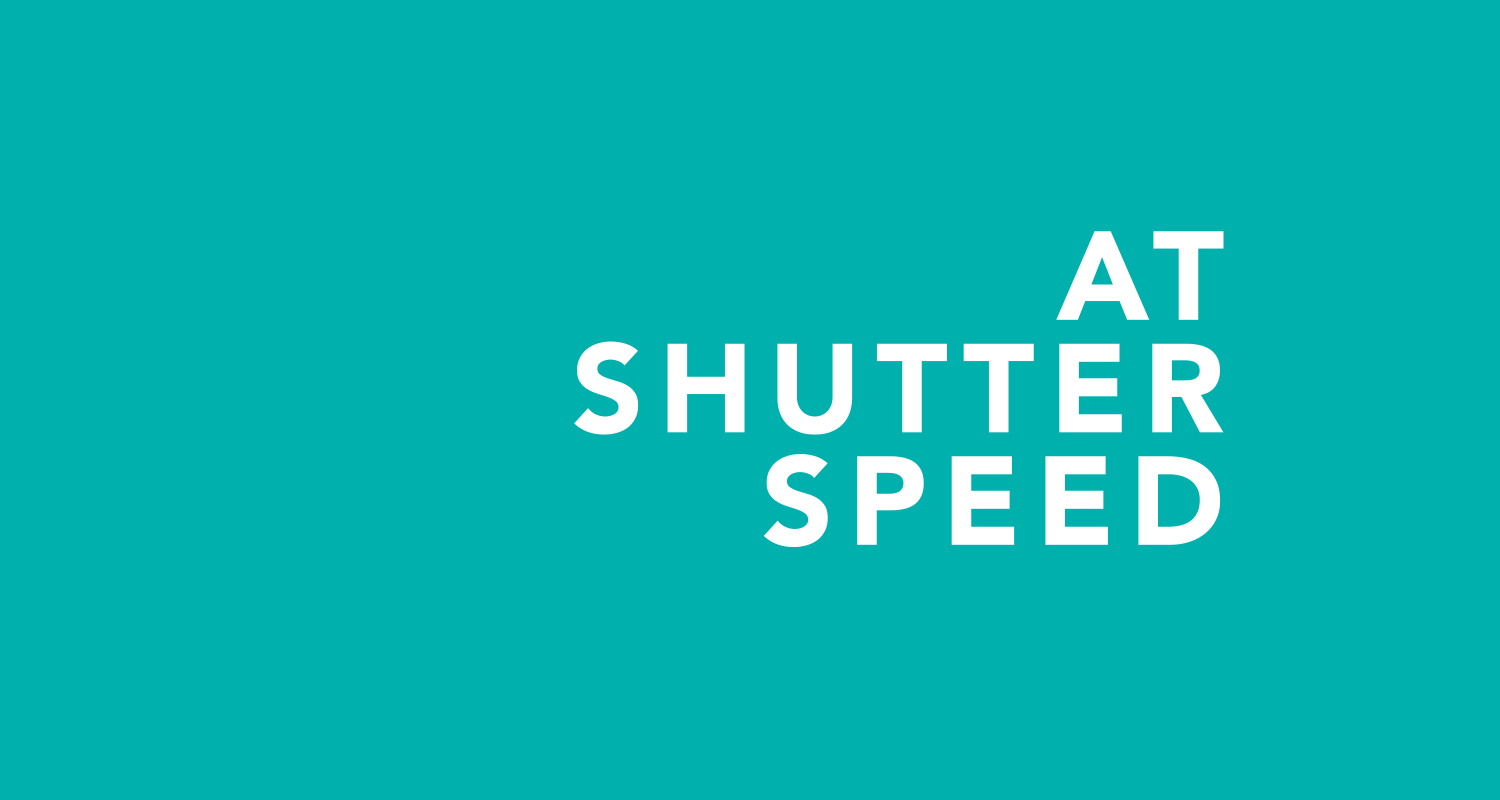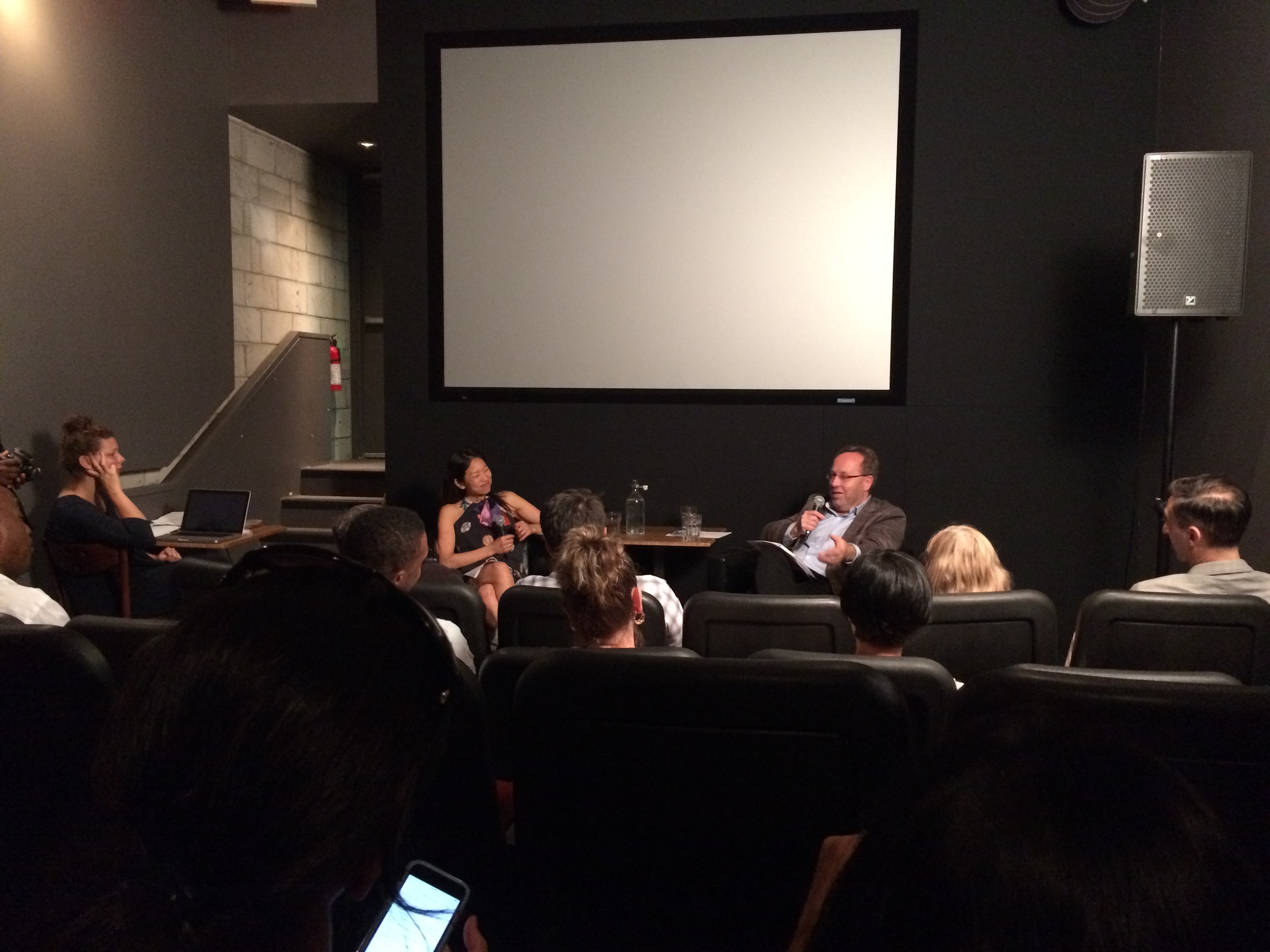As a DOC member now for the second year running, I am continually thrilled at the level of professional programming that they offer. From hands on courses to talks with local talent, it is always a pleasure to get together with people in the documentary community and hear success stories.
ANN SHIN (LEFT), TORONTO FILMMAKER, with GERRY GLAHIVE (RIGHT), TORONTO PRODUCER
This time, I had the pleasure to hear from Ann Shin, a Torontonian and extremely talented filmmaker, and moderator Gerry Flahive, a top producer involved with NFB projects.
Gerry led the conversation for the evening discussing all the available platforms that are available to filmmakers today. Ann Shin says the best way to determine how to tell the story starts with understanding the story itself: the "WHY" factor. Determining the heart of the story and then working outwards.
"I want to move people" - Ann Shin says to the crowd.
Ann Shin has a background in literature and has published poetry of her own. Poetry helps her distill emotion, she says, which perhaps offers her a unique lens to see story through.
Once you have determined the heart of the story, you can decide on the medium: a documentary is a cinematic story / interpretation of an event. An interactive project (VR) asks one question, usually one part of a story, and forces the viewer to feel in that moment what the subjects feel. Then it asks them to make a choice. The interactive should solve the question. A game or website can be a companion to the feature length doc or it can stand on its own today. HIGH RISE is a great example of a web documentary that stands on its own, offering the viewer a different experience and non-linear story line.
Ann described this process of deciding on a medium in scientific terms: "pretend a story is like a liquid. You can pour the liquid into an mould (medium) and the shape will always be different."
Ann much prefers a cinematic approach to her storytelling versus relying solely on verite (a journalistic approach). Verite will not always capture emotion and it is impossible to always be where the action is. At that point you have to question: okay how do I tell the story now?
In regards to her short film, My Enemy, My Brother, the story about how this film came together is very interesting. It wasn't always planned as a short. In fact, Ann pitched it as a feature length doc but no one budged with funding. Then her producer asked her to apply to BRAVO fact, which had a 15 minute limit. This forced her to pick what was truly important in her story. It was introduced at a few festivals and simply went viral. It screened at Tribeca, SWSX, and many others. Ann realized how potent a short form was on its own. It was shortlisted to win an Oscar!
The story doesn't end here, Ann has continued to find ways of telling the story through a documentary web series. She has also re-written her feature length documentary, realizing how the story has changed and even strengthened over time.
Ann and Gerry talk about some of the current dilemmas with new technology, the "need to producer across all platforms" for every project.
Again they both suggest that you have to consider four main areas when converting an idea into a project:
what's at the heart?
who is the audience?
bridges personal motivation with the world
who will support and fund the project?
support: broadcaster
fund: financial, helps realize the project
how will it be marketed?
what is relevant?
be active
using SM to build audience
Gerry also points out that it is imperative to dig deep into research,
"find your storytelling prism."
Part of the creative process is understanding how to measure success. With interactive, it is about understanding that people will spend no more than 5 minutes at a time online. That is why it is important in the creation process to understand how to tell the story that encourages people to continue coming back. With a web series, each episode has to be written and edited with a cliffhanger, encouraging people to stay tuned and watch next week's episode. Part of creating that success is having a good community manager (online / social media). A documentary film has to elicit empathy in the viewer, and can be enjoyed / viewed all at once.
The night was wonderful, both Gerry and Ann were wonderful speakers and excellent creators in their own right.
Until the next master series class
- Jenn

